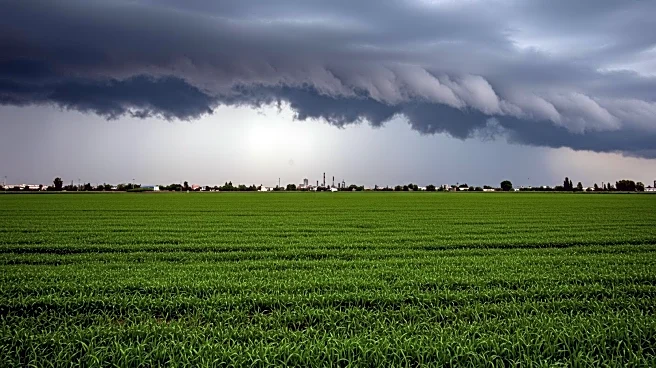What is the story about?
What's Happening?
Khalid Khokhar, President of Pakistan Kisan Ittehad (PKI), has raised concerns over the declining state of Pakistan's agriculture sector. He attributes the negative growth to poor government policies and the denial of fair wheat prices, which have pushed farmers to the brink of collapse. Khokhar highlighted the severe water shortage exacerbated by the establishment of more sugar mills, which deplete underground water reserves. He criticized the focus on sugarcane cultivation, which undermines the growth of other essential crops like cotton, wheat, and oilseeds. The imposition of an 18% tax on cotton cultivation and unfair rates for maize and potato growers have further strained the sector.
Why It's Important?
The negative growth in Pakistan's agriculture sector poses a significant threat to the country's food security and economic stability. Agriculture is a critical component of Pakistan's economy, and its decline could lead to increased poverty and food shortages. The focus on sugarcane cultivation at the expense of other crops could result in long-term environmental damage and reduced agricultural diversity. Khokhar's call for a Price Commission for agriculture underscores the need for policy reforms to ensure fair pricing and support for farmers. Addressing these issues is crucial to prevent further deterioration of the sector and to safeguard the livelihoods of millions of farmers.
What's Next?
Khokhar has urged the government to prioritize food security and establish a Price Commission to ensure fair pricing for agricultural products. If these demands are met, it could lead to policy changes that support sustainable agricultural practices and improve the economic conditions for farmers. The government may face pressure from various stakeholders, including farmers' associations and civil society groups, to address the water shortage and reconsider the focus on sugarcane cultivation. The outcome of these discussions could shape the future of Pakistan's agriculture sector and its role in the national economy.















